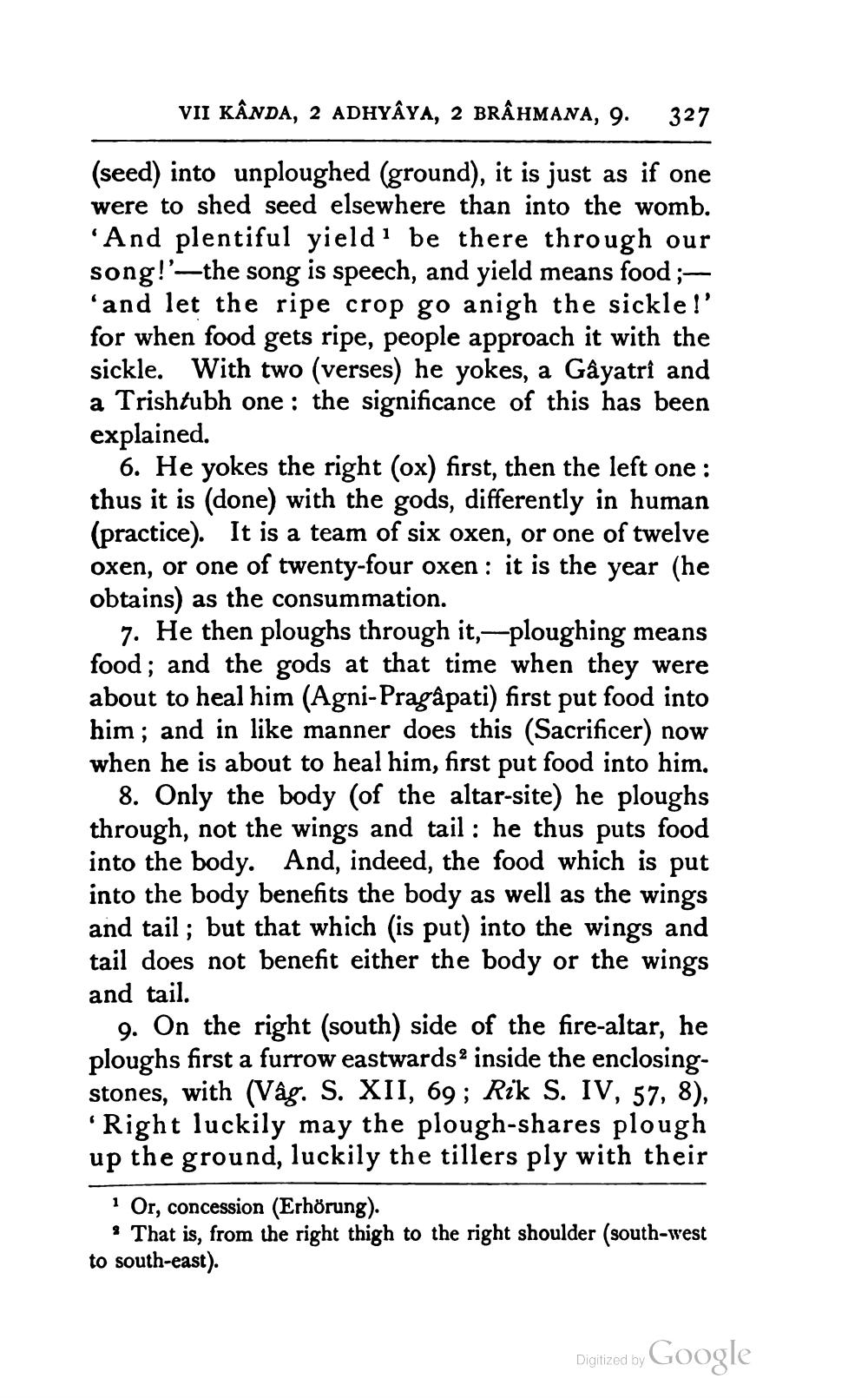________________
VII KÂNDA, 2 ADHYAYA, 2 BRÂHMANA, 9.
327
(seed) into unploughed (ground), it is just as if one were to shed seed elsewhere than into the womb.
And plentiful yield i be there through our song!'--the song is speech, and yield means food ;'and let the ripe crop go anigh the sickle!' for when food gets ripe, people approach it with the sickle. With two (verses) he yokes, a Gayatri and a Trishtubh one : the significance of this has been explained.
6. He yokes the right (ox) first, then the left one: thus it is (done) with the gods, differently in human (practice). It is a team of six oxen, or one of twelve oxen, or one of twenty-four oxen : it is the year (he obtains) as the consummation.
7. He then ploughs through it,--ploughing means food; and the gods at that time when they were about to heal him (Agni-Pragâpati) first put food into him ; and in like manner does this (Sacrificer) now when he is about to heal him, first put food into him.
8. Only the body (of the altar-site) he ploughs through, not the wings and tail : he thus puts food into the body. And, indeed, the food which is put into the body benefits the body as well as the wings and tail ; but that which is put) into the wings and tail does not benefit either the body or the wings and tail.
9. On the right (south) side of the fire-altar, he ploughs first a furrow eastwards inside the enclosingstones, with (Vậg. S. XII, 69; Rik S. IV, 57, 8), 'Right luckily may the plough-shares plough up the ground, luckily the tillers ply with their 1 Or, concession (Erhörung).
That is, from the right thigh to the right shoulder (south-west to south-east).
Digitized by Google




